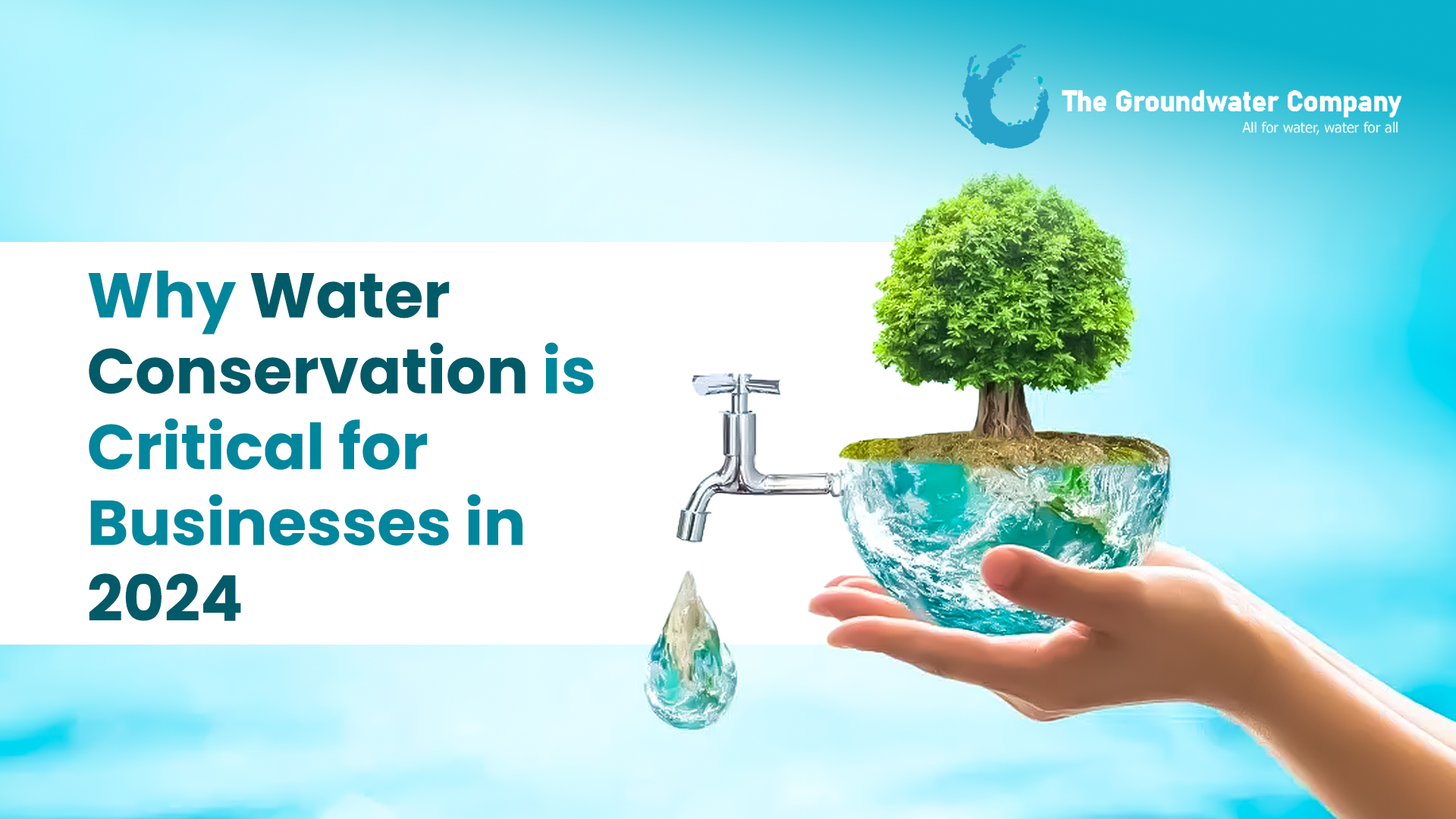In 2024, businesses across industries are facing increasing pressure to adopt sustainable practices. Among these, water conservation is rapidly becoming a key focus due to its environmental, economic, and regulatory implications. For businesses, effective water management not only ensures regulatory compliance but also reduces operational costs and enhances corporate sustainability profiles.
At Groundwater Company (GWC), we specialize in helping businesses adopt water conservation techniques that safeguard resources while enhancing profitability. As we look ahead to 2024, it’s more important than ever for businesses to implement strategies for efficient water use.
How to Conduct an Effective Water Audit for Your Business
The first step toward water conservation is understanding your current water usage. A comprehensive water audit identifies how much water your business consumes and where inefficiencies exist.
At GWC, we recommend conducting regular water audits to track consumption trends, leaks, and wastage. A water audit can often reveal significant cost-saving opportunities. For instance, studies show that businesses can reduce their water consumption by up to 30% by fixing leaks and optimising usage.
Through our water audit services, we help businesses identify water waste areas and provide recommendations on optimising water use across different departments.
Setting SMART Water Reduction Goals
Once your water audit is complete, the next step is to set achievable water reduction goals. For businesses, we recommend using the SMART goal-setting framework (Specific, Measurable, Achievable, Relevant, Time-bound) to ensure actionable progress.
For instance, instead of stating, “We will reduce water use,” a SMART goal might be: “We aim to reduce water consumption by 20% across all departments over the next 12 months by installing water-efficient fixtures and conducting regular water audits.”
Setting clear, measurable goals helps track progress and provides a clear roadmap for businesses to follow.
Top Water-Efficient Technologies for Businesses
With advancements in technology, businesses have access to numerous water-efficient systems that can significantly reduce consumption without compromising operations. Some of the best technologies include:
- Low-flow fixtures: Modern low-flow faucets, toilets, and urinals can cut water usage by up to 50% compared to traditional models.
- Greywater recycling systems: These systems treat and reuse water from sinks, showers, and other sources for non-potable purposes like irrigation, saving significant amounts of freshwater.
- Smart irrigation systems: For businesses with landscaping needs, smart irrigation systems adjust water use based on weather patterns, reducing outdoor water consumption by as much as 30%.
At GWC, we provide consultations on implementing these technologies to suit business-specific needs, ensuring maximum water savings with a minimal upfront investment.
Fostering a Water-Saving Culture in Your Business
Water conservation isn’t just about technologies—it’s about fostering a company-wide culture that prioritises sustainability. Businesses must educate employees about the importance of conserving water and provide practical ways for staff to contribute. From installing visible water usage trackers in common areas to hosting water conservation workshops, creating awareness can lead to more conscious water use.
Additionally, involving employees in conservation efforts, such as suggesting water-saving practices or participating in water reduction challenges, can boost engagement and company-wide commitment to sustainability.
Smart Outdoor Water Use Strategies for Sustainable Businesses
Outdoor water usage, particularly for businesses with landscapes, can be a significant drain on resources. However, there are several strategies that can minimise water use while keeping outdoor spaces well-maintained:
- Drought-tolerant landscaping: By planting native, drought-resistant plants, businesses can reduce their irrigation needs. These plants require less water, are adapted to local climates, and often have lower maintenance costs.
- Permeable paving: Traditional pavement doesn’t allow rainwater to filter into the ground, leading to runoff. Permeable pavements, on the other hand, allow water to seep through and recharge the groundwater table. This practice can help prevent both water wastage and flooding in urban areas.
At GWC, we assist businesses in implementing smart outdoor water use strategies that prioritize sustainability without sacrificing the aesthetic appeal of outdoor spaces.
Take the Lead in Business Water Conservation with Groundwater Company
In 2024, businesses have a unique opportunity to lead the charge in sustainable water management. By conducting effective water audits, setting actionable goals, investing in water-efficient technologies, and cultivating a culture of conservation, businesses can significantly reduce water consumption and make a lasting impact on the environment.
At GWC, we are committed to helping businesses achieve zero-risk, water-saving solutions tailored to their operational needs. Whether you’re looking to conduct a water audit, install cutting-edge technologies, or foster a culture of sustainability within your team, our expertise ensures that your business leads the way in water conservation.
Contact us today to explore how GWC can support your business in creating a water-conscious future.


